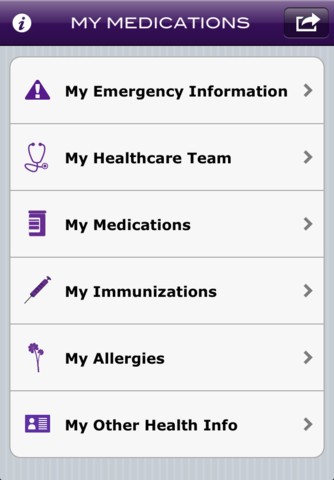Work & Chronic Illness (Part 2): How to Find Accommodations

- People who can work full-time jobs
- People who really can’t work but are forced to in order to pay for the medical bills—many of them report feeling worsening of symptoms because they cannot rest
- People who can work if they are given accommodations
- People who can work part-time jobs
- People who create their own hours (starting your own business can be harder for some patients more than others)
In this post, I’ll be focusing on accommodations—when to ask for them and examples of accommodations. I’m exploring accommodations for nine conditions (depression, bipolar disorder, anxiety, agoraphobia, ADD/ADHD, Myasthenia Gravis, Ehlers Danlos Syndrome, Chiari Malformation, and Tonsillar Ectopia). These are the illnesses Fashionably ill readers said they needed accommodations for on Facebook. A great way to find accommodations (for people in the U.S.) is to search the government’s website, Ask Jan (Job Accommodation Network) at http://www.askjan.org. Unfortunately, not all illnesses are represented so you may have to “google” your illness, which is something I did for some of these illnesses. Fortunately, Ask Jan also helps people determine if a condition is a disability rather than offering a fixed list of what illnesses constitute disabilities.
When to Ask
According to Ask Jan, people with invisible disabilities (examples given: brain tumor and PTSD) should not feel like they are being dishonest if they do not disclose information in job interviews. In their helpful document, “Dos and Don’ts of Disclosure,” Ask Jan stresses not disclosing information “too soon, too late, or to everyone.” Ask Jan says, “When you disclose, just provide basic information about your condition, your limitations, and what accommodations you may need. Don’t disclose too late: Don’t wait to disclose until after you begin to experience work performance problems…Remember, the purpose of an accommodation is to enable a qualified person with a disability to perform the essential functions of the job. So, disclose when you first realize you are having difficulties.”
Privacy
Ask Jan also says, “Remember that you have a right to keep information about your disability private. It is not necessary to inform coworkers and colleagues about your disability or your need for accommodations. While they may be aware of the accommodations…they are not entitled to know why. Your employer is required by the ADA to keep your disability and medical information confidential and to give it to managers…only on a need-to-know basis.”
My Story
I have five illnesses: bipolar 2, polycystic ovarian syndrome (PCOS), Myasthenia Gravis (MG), asthma, and psoriasis. I worked for a mental health profit for a couple of years. I knew pain and fatigue from Myasthenia Gravis would be difficult. Despite my conditions, I was able to win the highest awards in the mental health industry like Second Prize in the National Council of Community Behavioral Healthcare’s Awards of Excellence. I took an hour nap once a day when I got too tired. (I didn’t have a lunch break; I ate while working). I had sleep apnea for four years (I no longer have it because of Reliv). At one point, my CPAP machine was in the office. My hours were more flexible but I still put in the requisite eight hours a day. The pain of PCOS was tremendous; I still worked through it. On two occasions, my employer kindly told me to go home early when I was wincing in pain.
Sharing a Mental illness?
Bipolar hypomania, which resulted in me not being able to sleep until 3 am, only happened twice. Because it was a mental health job, I was able to email my employer explaining that I couldn’t sleep, that I did three weeks of work in one night which I could show her, and that I could come in to work late and leave late. If I wasn’t working in mental health nonprofit, I would not have disclosed my bipolar disorder because it rarely impacted my job. I know people who have jobs where
they face mental health discrimination. If bipolar disorder affected me more, than I would consider disclosing it to an employer. This is a difficult decision because often we don’t know how people will react until they react. Everyone is different: There are people who are more impacted by bipolar disorder than I am. Similarly, there are people with MG and PCOS who are in less pain than I. For more info about dealing with mental health impairments, go here.
Accommodations
DEPRESSION
https://askjan.org/media/depr.htm
BIPOLAR DISORDER:
http://askjan.org/media/Bipolar.html
ANXIETY:
https://askjan.org/soar/psych.html
AGORAPHOBIA:
(see above document—agoraphobia is considered an anxiety disorder)
ADD/ADHD (ATTENTION DEFICIT HYPERACTIVITY DISORDER):
http://askjan.org/cgi-win/search.cgi?zoom_sort=0&zoom_xml=0&zoom_query=ADHD&zoom_per_page=10&zoom_and=1&zoom_cat%5B%5D=-1 (click on item #2)
MYASTHENIA GRAVIS:
http://askjan.org/media/myas.htm
MGA-WPA, Myasthenia Gravis Association of Western Pennsylvania has some great resources—click here.
(Unfortunately, it was much harder for me to find resources for the three diseases below, which highlights the need for awareness. I’ve begun interviewing people who want to share their stories. Fashionably ill will be putting out a series of interviews from people with a wide variety of chronic illnesses; let me know if you’re interested.)
EHLERS DANLOS SYNDROME:
Social Security: http://www.disabilitysecrets.com/resources/disability/getting-disability-benefits-ehlers-danlos-synd
CHIARI MALFORMATION:
http://www.conquerchiari.org/subs%20only/Volume%205/Issue%205(4)/Chiari%20&%20Employment%205(4).html
Testimonials: http://www.conquerchiari.org/subs%20only/Volume%205/Issue%205(4)/Chiari%20&%20Employment%205(4).html
Social Security: http://www.disabilitysecrets.com/conditions-page-1-14.html
TONSILLAR ECTOPIA:
http://www.upright-health.com/tonsillar-ectopia.html
http://www.chiariaustralia.com/chiari-faq-s (from Australia)
Your Take?





